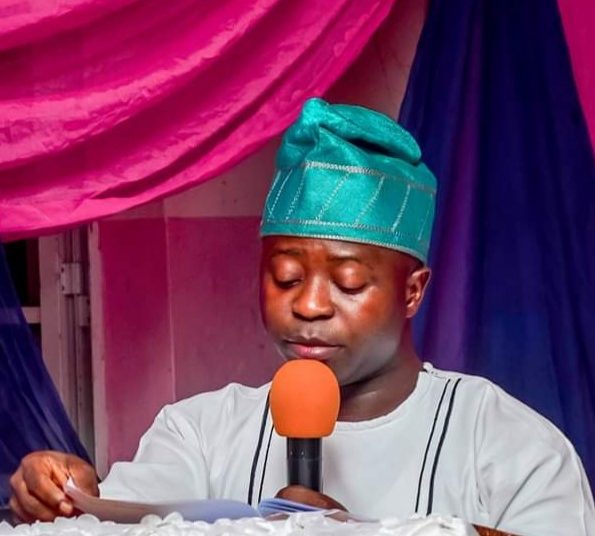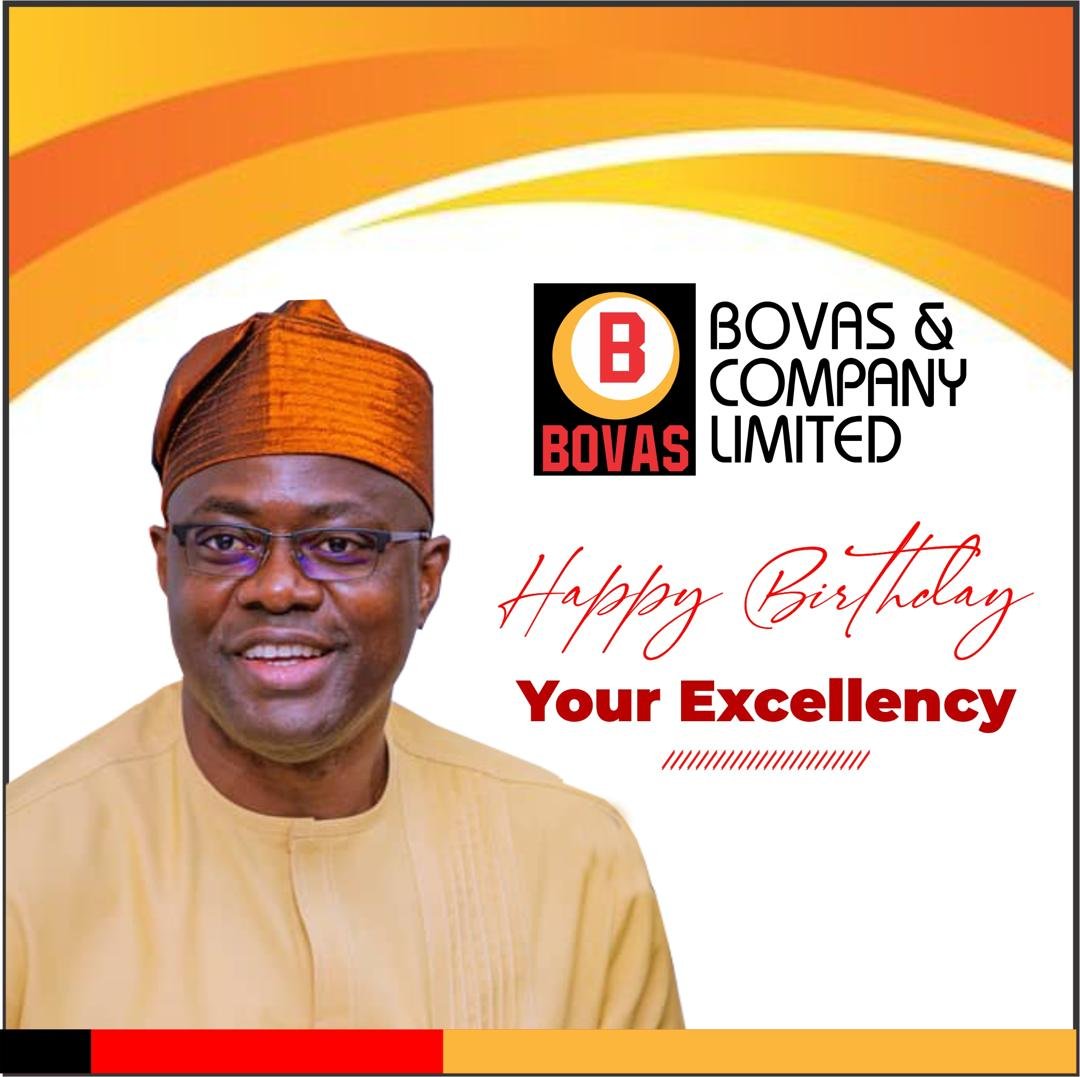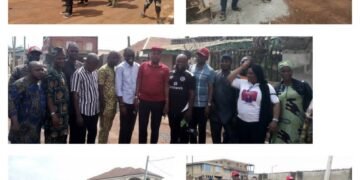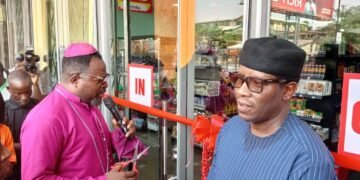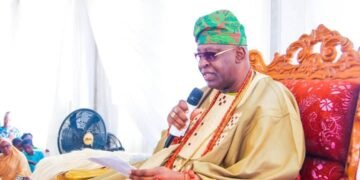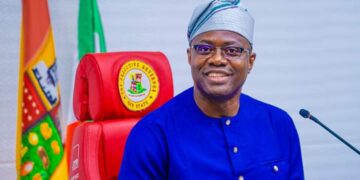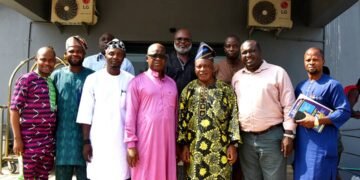Being the text of speech delivered by The Publisher of The Drum Online, Prince Akanni Segun at All Nigerian United Nations Students and Youth Association’s Conference (University of Ibadan Chapter) held at Alumni Auditorium, University of Ibadan, Thursday January 24th, 2019
The word media is derived from the word medium, signifying mode or carrier.
The media are responsible for providing information, education and entertainment. The word media was first used in reference to books and newspapers, that is the print media. But with the advent of technology, media now encompasses television, movies, radio and the internet.
There is no gain saying that the media has a big role to play, not only in ensuring that elections are transparent, but in ensuring also, that the outcome of any given election reflects the true wishes of the people.
Suffice it to say that, the watchdog role of the media, naturally comes to bear at election periods. It is safe to propagate therefore, that the media are essential to democracy, and a democratic election is impossible without it.
A free and fair election is not only about the freedom to vote and the knowledge of how to cast a vote, but also about a participatory process where voters engage in public debate and have adequate information about parties, policies, candidates and the election process itself in order to make informed choices. The media acts as a watchdog to democratic elections, safeguarding the transparency of the process.
In order to fulfill their roles, the media need to maintain a high level of professionalism, accuracy and impartiality in their coverage. Regulatory frameworks can help ensure high standards. Laws and regulation should guarantee fundamental freedoms essential to democracy, including freedom of information and expression, as well as participation.
It is pertinent to also note that provisions such as requiring government media, funded out of public money, to give fair coverage and equitable access to opposition parties, help ensure appropriate media behavior during elections.
The media have traditionally been understood to refer to the printed press as well as radio and television broadcasters. In recent years however, the definition has become broader, encompassing new media including online journalism, and social media. Citizen journalism is widely gaining attraction, including in countries where traditional media is either controlled or strictly regulated.
In today’s world, the media have become very essential because they play outstanding roles in the society. Aside the popular known roles the media have to be identified with, they also have a greater responsibility for ensuring free and fair elections.
Breaking it down for the purpose of this discussion, we shall examine some ways through which the media can ensure that the vote of tbe people indeed count.
Like it was mentioned earlier, the Media play a watchdog role over all powerful institutions in society and ensure that their decisions and actions are in the interest of the larger society.
According to Jimmy Reid, a Scottish trade unionist , the task of the media in a democracy is not to ease the path of those who govern but to make life difficult for them by constant vigilance as to how they exercise the power they only hold in the trust of the people.
This brings us to the status of the media as the fourth estate of the realm because the media help to put politicians and relevant institutions in check while a competent searchlight is equally beamed on the electorate as well.
The media are also supppse to educate the electorate on the workings of the Electoral Commission, in order for all to appreciate the responsibility that has been placed on the shoulders of the commission to deepen democratic credentials.
However, for commercial reason, the media often time than not, wait for government patronage to embark on enlightenment programs at election period. This should not be so, as the enlightment programmes to the people on poitical activies should form part of the social reaponsibity obligation of the media.
Being the most important sources of information and knowledge, the media have the enormous power to set society’s agenda. The media should not allow politicians to divert the public’s attention away from their records of performance and other issues relevant to peace, harmony and progress of the society.
Without the media, democratic elections are almost impossible since the media are essential to democracy that is why the government’s power to censor the press was abolished for the press to remain free to monitor the government and this monitoring include electioneering activities.
This is because free and fair elections are not only about the freedom to vote and the knowledge of how to cast a vote, but a participatory process where voters engage in public debate and have adequate information about parties, policies, candidates and the election process in order to make informed choices. The media have to be bold to report accurately on anything that can derail the democratic process.
It is important to register that the media are an essential organ of the democratic set-up, an important vehicle of communication and instrument in the creation of public opinion. This has earned the media the trust to serve public interest. The media have to provide honest, detailed, dependable and credible account of events concerning the elections. Journalists have to go to the polls to report observers and electoral Commission officials live at the polling centres to enable the public to ensure everything is going well.
They also have to report on irregularities, fraud, threats of violence to get authorities to respond.
Through the alertnes of the media, rigging plans, by electoral commission members and hired political thugs are detected and nipped in the bud before their actions could derail the process . In ensuring that the votes of the people count, there is the need for various communication mediums represented to monitor electoral activities beyond the polling boots.
There is this common language used among politicians in Yoruba speaking area of Nigeria called “ibo oloyi” which could translate to mean intimidating votes.
These votes usually emerge after the normal voting and its usually made possible through the collusion of electoral officers and the political party that could pay for their service, usually the ruling party.
But this nefarious activity could be stopped by the alertness of television ,radio stations and online media on ground ,so as to ensure that the figures announced at the voting centres are not inflated at the final collating centre.
This particular “Ibo oloyi” also known as miracle votes have in the past robbed people of thier choices for political offices as figures have been arbitrarily inflated and awarded to favour a particular candidate.
A capable media should be able to detect before hand, things that could derail elections or subtract from the credibility of the elections before any damage is done.
Thanks you for listening…..


